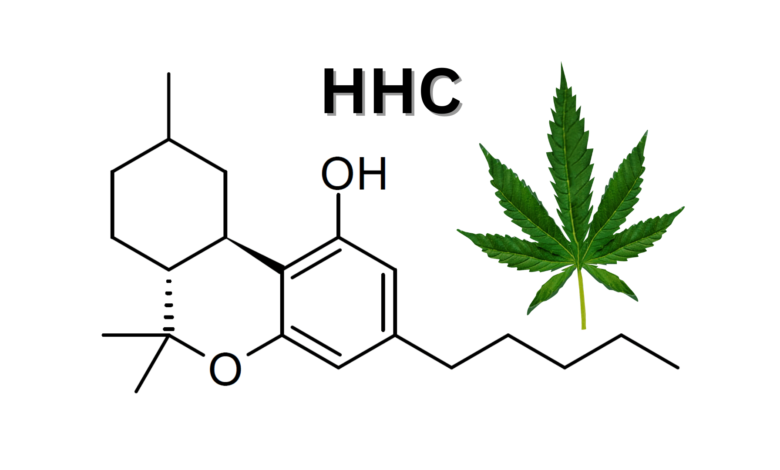5 Key Differences Between HHC and THC You Need to Know

HHC is a semi-synthetic cannabinoid that’s produced by hydrogenating delta-9 THC molecules and replacing one double bond with two hydrogen atoms. This alters the molecular structure and makes it more stable.
Many users say HHC products can give them a “high” without the psychoactive effects that come with THC and marijuana. This is mainly anecdotal, as much more research needs to be omgblog conducted.
It’s a Cannabinoid
Tetrahydrocannabinol, or HHC, is a cannabinoid that naturally occurs in trace amounts of marijuana and hemp cannabis plants. It’s been compared to delta-8 THC in terms of its effects, which include feelings of relaxation and euphoria. HHC’s chemical structure is very similar to THC, but it lacks a double bond on the ninth carbon atom in the cyclohexyl ring. This slight difference may contribute to its distinct pharmacological wesomenia effects.
HHC is created by hydrogenating THC, a process where organic chemists replace the double bond with two hydrogen atoms to create a more stable molecule. This modification makes the cannabinoid more resistant to heat and UV light.
While HHC hasn’t been extensively studied, anecdotal reports indicate that it produces the same psychoactive effects as THC. As with all cannabinoids, it’s essential to consume HHC in moderation. It’s also important to note that HHC will show up in a drug test, so it is not recommended for those who work in the industry. However, HHC does not seem to be as likely to cause addiction or withdrawal symptoms compared to THC.
For instance, Texas 420 Doctors provides a variety of hemp-derived CBD, delta-8, and other products with the holistic benefits you anticipate.
HHC It’s a Semi-Synthetic Cannabinoid
HHC is a semi-synthetic cannabinoid, meaning it maintains the molecular structure of THC but undergoes minor chemical modifications to improve or refine its pharmacological profile. It is produced through hydrogenation, where two carbon double bonds are replaced with hydrogen to change the molecular structure of THC.
Hydrogenation is a popular method to modify cannabinoid molecules because it improves their stability and resistance to UV light or heat degradation, extending their shelf life. This is important for cannabis products, which are exposed to extreme conditions when smoked or stored in vape devices.
Hexahydrocannabinol is found in the seeds and pollen of the Cannabis sativa plant but is also manufactured through THC hydrogenation in lab settings. It is a psychoactive cannabinoid that causes the user to experience mild euphoric sensations, similar to delta-9 THC, and binds to endocannabinoid receptors in the brain, changing how we perceive sight, sound, appetite, and movement.
Tetrahydrocannabinol has been used as a painkiller in rat studies, but more research is needed on its potential benefits in humans. It is legal in some states but still exists in the murky legal zone between hemp and marijuana and must be consumed with caution because high doses can cause hallucinations, anxiety, or nausea.
It’s Less Potent
HHC has a much lower potency than delta-9 THC found in cannabis. That’s because adding hydrogen atoms to delta-9 THC decreases its ability to bind to CB1 receptors in the brain. This makes it less psychoactive and more of a mild nudge for the ECS to get its job done, as opposed to a violent shove.
The result is that HHC is said to produce a more energizing and stimulating high that’s good for social activities and creative work, as opposed to the relaxing and soothing effects of delta-9 THC from marijuana. This makes it better suited to unwinding at the end of the day or for first-time users who might be nervous about feeling too high or paranoid.
The high produced by HHC typically lasts for two to three hours, though this can vary depending on how the product is consumed and your tolerance and metabolism. It also depends on whether or not you choose to use an HHC vaporizer, which is becoming increasingly popular since it’s considered safer than smoking.
It’s More Stable
While THC has the potential to cause anxiety, paranoia, and other side effects at high doses, HHC tends to induce a more balanced and moderate ‘high.’ Early anecdotes and limited research suggest that this cannabinoid promotes relaxation, euphoria, and increased focus and creativity. HHC is also thought to last longer than THC and provide more pain relief. Unlike delta-8 and delta-9 THC, hemp-derived HHC won’t show up in drug tests, so it’s an excellent option for anyone concerned about passing a workplace drug test.
The process of hydrogenation makes HHC more stable than THC, which can degrade over time due to oxidation. This allows it to stay fresher and maintain a higher potency for extended periods. As a result, it’s easier to produce consistent results from HHC products, which is especially important when it comes to edibles. As a bonus, this makes it less likely that pure HHC will contaminate other cannabinoids like CBD when combined with them in a product. It also extends the shelf life of HHC products, which can typically be stored for up to six months without losing potency.
It’s Legal
HHC, which stands for tetrahydrocannabinol, is a semi-synthetic cannabinoid made by adding hydrogen molecules to THC. It is not found in the cannabis plant but has become popular amongst individuals seeking a more enjoyable high that doesn’t trigger feelings of anxiety or paranoia. It is said to produce energizing effects that are better for social settings and creative workflow than delta-8 THC’s relaxing and sleepier sensations.
/////////Unlike THC, it has not been subject to extensive research, and side effects are only known through anecdotal evidence. It’s also been claimed that HHC is undetectable in drug tests, but since this hasn’t been extensively tested, users should avoid products such as HHC gummies or vape carts if they’re worried about failing a drug test.
While HHC has emerged only recently, it is a common cannabinoid on the market today and can be purchased in the form of capsules, edibles, or vape products. Because it metabolizes similarly to THC, it can lead to a positive result on a drug test. Despite this, as long as it is produced from hemp and contains less than 0.3% delta-9 THC, it’s legal in the United States.




